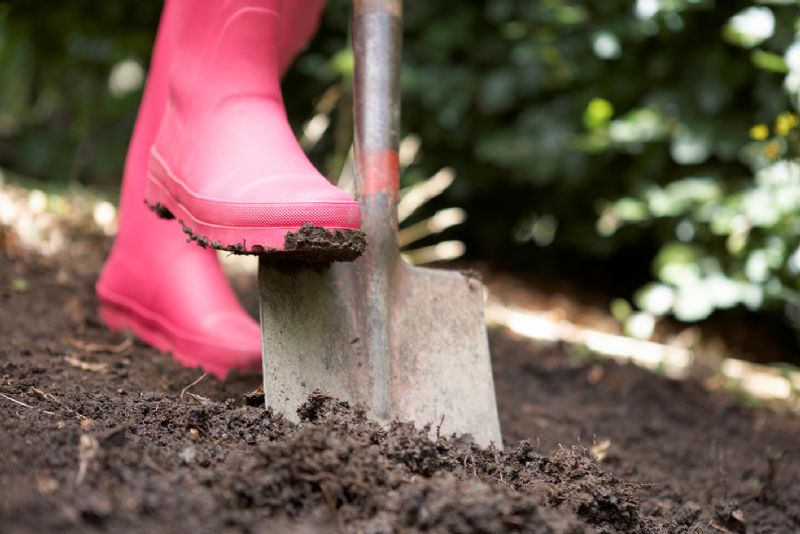- Home
- News, Articles & Reviews
We are hiring! Please click here to join our growing magazine delivery team in Gloucestershire!
Areas
Homes & Gardens
Archive

How to grow a garden – a beginner’s guide
All Areas > Homes & Gardens > General
Author: Rae Steinbach, Posted: Thursday, 6th June 2019, 14:20
Gardening is an extremely rewarding hobby for homeowners. Of course, you can’t create a thriving garden without knowing how and where to get started.
The process doesn’t need to be difficult. Even if you’re a complete beginner, following these steps will help you start gardening in no time.
Choose crops
It’s best to choose crops that you’ll actually eat when starting a garden. You don’t want to waste time, money or food by cultivating produce that’s of no real value to you.
It’s also important to research which crops are best-suited to your region. Experts at your local garden centre can help you make the right choices.
Choose a location
Once you know what you plan to grow, you can decide where to grow it.
Some crops can be grown in the shade. However, chances are yours will need at least five hours of direct exposure to the sun every day, so pick a growing location accordingly.
You should also make sure you choose a relatively prominent spot for your garden. If it’s easy to overlook on your property, there’s a chance you’ll neglect it. This can also happen if you plant your garden in an area that’s difficult to access.
The location you choose will help you design your garden beds. Arranging your individual crops in beds that are no more than four feet across and 10 feet long helps you use the space efficiently, while also making it easy to tend to your garden’s needs. You may also want to select some companion plants, which help your main crops stay healthy by attracting the right insects.
Your beds can be arranged vertically if you have limited space with which to work. Otherwise, you’re free to get a little creative with the arrangement. Rectangular beds are common, but you don’t need to go this route.
If you’re planning to grow climbing plants, like peas, tomatoes or cucumbers, you may also want to put stakes into the soil. You can easily cut scrap wood with a tool fitted with oscillating saw blades or with an electric chainsaw if you have larger pieces of wood lying around.
Get the right tools and soil test
You need certain essential tools to maintain a garden. These include hoes, rakes, a lightweight wheelbarrow and hand tools. Again, you can also discuss the topic with a garden centre employee.
They can also recommend a quality soil tester. Most crops require a balanced soil pH of 7 (though you should always do your research to confirm this is the case with your crops). If your soil is too alkaline or acidic, ask a garden centre expert to recommend a product for balancing it.
They’ll also help you decide what type of organic matter is best for building your soil. You have several options, including compost, manure and dead leaves.
Plant and nurture carefully
Some crops are sold as transplants, some as seeds. Either way, they’ll have instructions for planting them. Follow these instructions carefully after building your soil.
The instructions will also likely tell you how to nurture your crops. It’s important to follow these strictly as well. As a beginning gardener, you can’t rely on your intuition or past experience to maintain a garden.
That’s why scheduling time to nurture your crops is important. Keep a garden maintenance calendar and adhere to your schedule. This is key to growing a robust harvest.
Luckily, if you keep all these tips in mind, you’ll wind up with a very strong harvest for a first-time gardener. As you spend more time developing your skills, you can experiment with different crops and soil types. Getting started may be exciting, but it’s just the first part of a hobby you’ll enjoy for years.
This article was contributed by Worx and Rockwelltools.Copyright © 2026 The Local Answer Limited.
Unauthorized use and/or duplication of this material without express and written permission from this site's author and/or owner is strictly prohibited. Excerpts and links may be used, provided that full and clear credit is given to The Local Answer Limited and thelocalanswer.co.uk with appropriate and specific direction to the original content.More articles you may be interested in...


© 2026 The Local Answer Limited - Registered in England and Wales - Company No. 06929408
Unit H, Churchill Industrial Estate, Churchill Road, Leckhampton, Cheltenham, GL53 7EG - VAT Registration No. 975613000You are leaving the TLA website...
You are now leaving the TLA website and are going to a website that is not operated by us. The Local Answer are not responsible for the content or availability of linked sites, and cannot accept liability if the linked site has been compromised and contains unsuitable images or other content. If you wish to proceed, please click the "Continue" button below:




